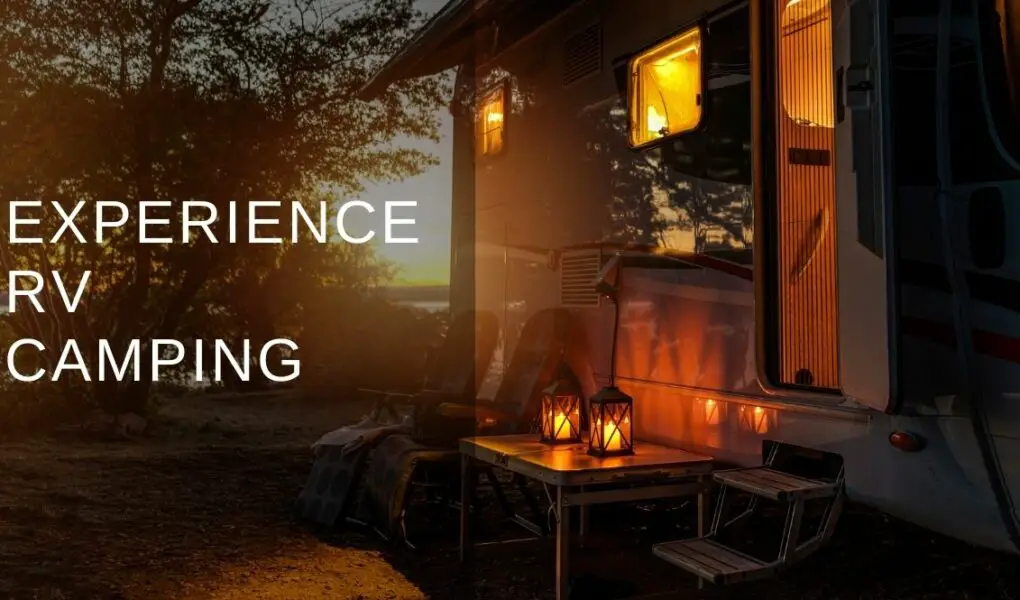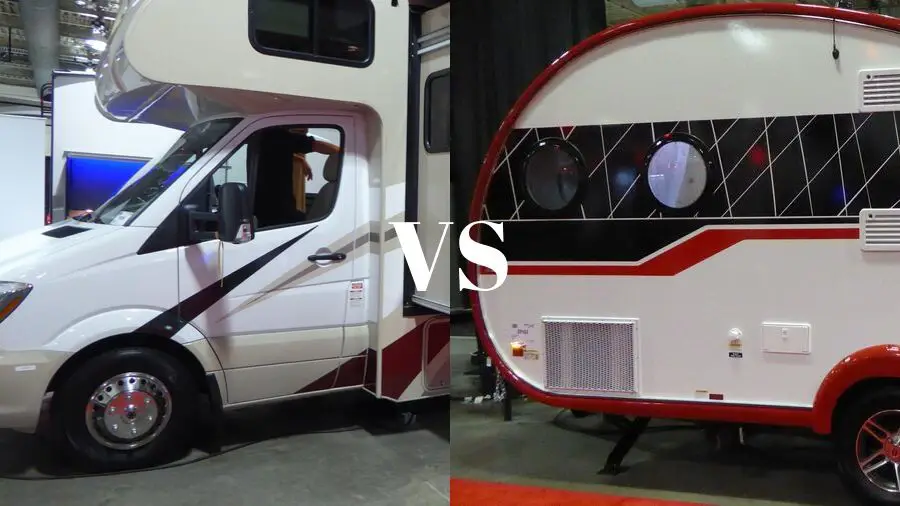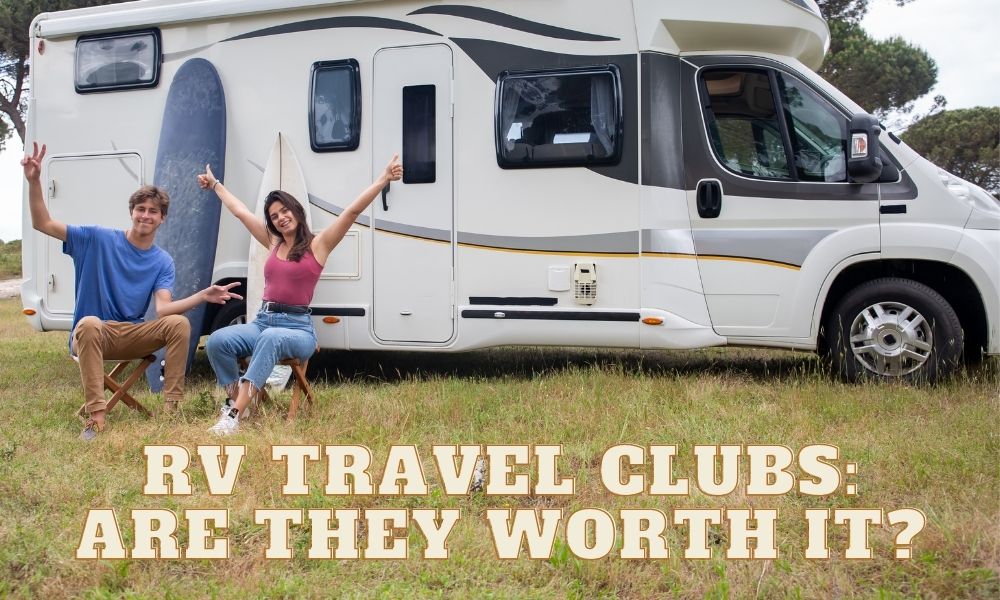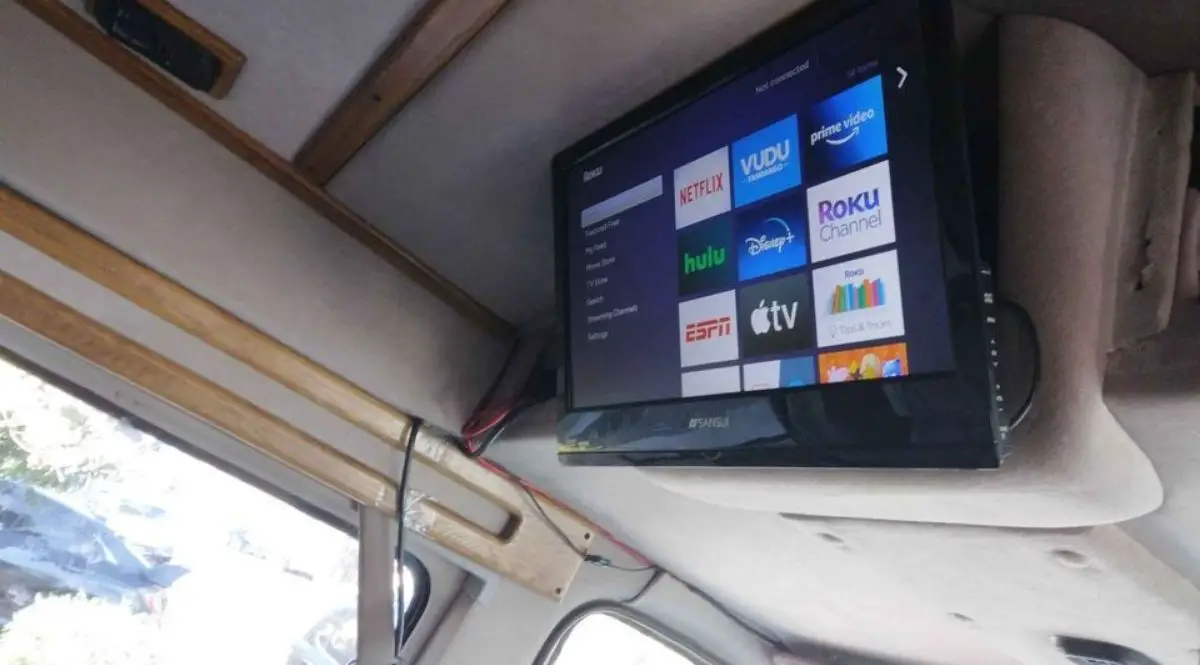The experience of staying in an RV is a unique one, where you have the freedom to travel to different destinations and have the flexibility to change your itinerary at any time, without the need to worry about booking a hotel room or finding a place to stay. You have the comfort of your own bed, kitchen and bathroom, which can be more convenient and cost-effective than staying in hotels.
Moreover, RVing allows you to explore nature and the great outdoors in a way that traditional travel methods simply cannot match. It’s a great way to disconnect from the fast-paced world, spend quality time with loved ones, and create lasting memories out in the bush or in a fully serviced campground.
If you ask anyone that owns an RV, they will tell you that the experience of camping in an RV is similar to staying in a condo or small apartment depending on the size of the RV. It is quite comfortable, though it is smaller in square footage than what is typically found in a house.
Most RV’s have similar amenities as a typical house or apartment would have such as bathroom and shower, kitchen, stove, and microwave, heating and cooling. However, smaller RV’s such as tear drop trailers, camper vans or tent trailers typically lack a bathroom and shower. Though the experience in a tent trailer is actually closer to that of tent camping then the RV experience.
Smaller campers such as a campervan, class B or small C motorhomes without a slider or a smaller travel trailer such as a 20 foot or smaller can be a little more cramped. But still comfortable.
However, if you are staying in a class A, super C motorhome or a 5th wheel or travel trailer larger than 30 feet, the experience can be quite spacious. Especially if that RV has sliders, which are portions of the RV that expand on the sides to double the interior space of the RV when it is parked or camping.
What is the experience of staying in the different sizes of RVs?
Let’s look a little closer at the different types and sizes of RV’s and what you might experience in each size of RV.
The Basic RV Experience
The typical small RV experience are Tear drop trailers & pods, camper vans, small trailers, soft pop-up trailers and hard sided pop-up trailers are just that small and cramped. Very often you are on top off each other when moving around, even with 2 people. Space utilization is required due to the limitations. Often you will not find a bathroom or shower in these small RVs. Tent trailers aside, they have the largest footprint of these basic RV’s, due to their ability to expand. Tent trailers do not provide the same experience and comforts of a hard walled RV. Often the Kitchen the is a single or double burner with a sink or it will only exist on the outside such as what is found a on a teardrop trailers. When it comes to comfort for the number of people, ideally 1 to 2 is the max other than the tent trailers which can house up to 6 people.
The Mid-sized RV experience
When it comes to midsized RVs, such as Class B and B+ motorhomes or Class C motorhomes, or even smaller travel trailers up to about 24 feet, the experience is quite similar. In a nutshell, it can be described as “cozy” and perfect for a small family of 2 to 4, depending on the size of the RV. These RVs offer the comfort and amenities of a small house, with a full kitchen including a stove, oven, refrigerator with freezer, sink, microwave, furnace, and air conditioning. Additionally, they have a full dry bathroom with a separate shower, toilet, and sink, as well as hot and cold running water.
When it comes to maneuverability, smaller units are easier to drive or tow. However, some Class C motorhomes and travel trailers can reach up to 33 to 35 feet in length with slides on both sides, which can provide ample space when parked but can be a bit challenging to move around. Ideally, motorhomes that are 25 feet or smaller and travel trailers of a similar size are more manageable and easier to navigate.
The Luxury RV Experience
Staying in a luxury RV, such as a Class A or a Super C motorhome, or a 5th wheel is truly an experience like no other. These RVs are designed to provide all the comforts of home, but with the added freedom and flexibility of being on the road. They typically range from 30 to 40 feet in length and come equipped with a wide range of amenities that are sure to make your trip a memorable one.
One of the most notable features of luxury RVs is the amount of space and storage they provide with multiple extensions. These RVs have large living areas with plenty of room to move around and relax, as well as ample storage space for all your belongings. They typically have a fully equipped kitchen, with a stove & Oven, refrigerator, wine fridge, dishwasher, and microwave, as well as a large dinette or table area, perfect for enjoying a meal or playing games with the family.
Another key feature of luxury RVs is the level of comfort they provide. These RVs are equipped with comfortable seating and sleeping areas, as well as air conditioning and heating systems, to ensure that you can travel in comfort, no matter the weather outside. Some luxury RVs also come with additional amenities such as a fireplace, a built-in entertainment system, and even possibly a hot tub or a spa in the not too distant future.
The bathroom and shower facilities in luxury RVs are also top-notch. They typically have a full-size bathroom with a shower, toilet, and sink, as well as plenty of storage space for toiletries. This allows you to have the privacy and comfort of your own bathroom, without having to rely on public facilities. In addition to this, luxury RVs also come with a fully functioning laundry area, including washer and dryer which means you can keep your clothes clean and fresh throughout your trip. Some even come with central vacuums so you can keep your RV clean.
Of course, luxury RVs also come with advanced safety features, such as backup cameras, lane departure warnings, and automatic braking systems, to ensure that you can travel with confidence and peace of mind. All these features make luxury RVs ideal for long-term travel, extended road trips, or even full-time living.
Tips for those considering an RV trip
Choosing the right RV for your needs: It’s important to consider factors such as size, weight, and fuel efficiency when choosing the right RV for your trip. This will ensure that you have the right amount of space and amenities for your needs, and that you’re able to navigate and park in unfamiliar places with ease.
Planning ahead for campsites and RV parks: Booking campsites and RV parks in advance, especially during peak season, will ensure that you have a place to stay and avoid the stress of last-minute planning. Also, research different options of campgrounds and RV parks, some offer different amenities and activities, and choose the one that best fits your needs and preferences.
Packing and storage strategies: Due to the limited space in most RVs, it’s important to be mindful of what you bring and how you store your belongings. It’s easier to base your packing on what you need based on the time of year and where you are going, than to bring a little of everything. A packing list focused on the seasons and locations is a great starting point.
For example, if you’re traveling during the summer, you’ll likely need lightweight clothing and sunscreen, whereas if you’re traveling in the winter, you’ll need warm clothing and perhaps a portable heater. Also, if you’re heading to a beach destination, you’ll want to pack beach gear like umbrellas, chairs, and towels, but if you’re heading to a mountainous region, you’ll want to pack hiking gear like a backpack and hiking boots.
Understanding the basics of RV maintenance and troubleshooting: Knowing how to check and change the oil, check the tire pressure, and troubleshoot common issues such as a dead battery is essential for a smooth and safe trip. Additionally, having a basic tool kit and emergency supplies on hand, in case of any unexpected issues, will be helpful.
Staying safe on the road: Following safe driving practices, such as observing speed limits, checking mirrors, and taking regular breaks is important for a safe and enjoyable trip. Remember it’s the Journey not only the destination when it comes to RVing! Additionally, It’s important to have emergency supplies on hand, such as a first aid kit and a fire extinguisher, and to know where the nearest hospitals and emergency services are located.
By considering these tips, and taking the time to plan and prepare, you can ensure that your RVing experience will be a great one.
Additional Resources to Get started
Websites and resources for RVers: There are many websites and resources available for RVers, including online forums, social media groups, and blogs. Including this article on the 23 things you must know before renting any RV. These can be a great source of information on everything from RV maintenance and troubleshooting, to finding RV-friendly campsites and RV parks.
Here’s a few additional helpful articles to read:
What is the Etiquette for places like Walmart camping?
RV rental agencies and experts: For those who are new to RVing or prefer not to own an RV, renting an RV can be a great option. There are many RV rental agencies and owner renter websites you can purse through to find the right RV for you. Have a read of this article on owner renter sites to consider. If you prefer experts that can help you choose the right RV for your needs and provide support and guidance throughout your trip consider a Rv rental agency.
RVing with pets or children: RVing with pets or children can be a wonderful experience, but it also requires some extra planning and preparation. There are many resources available to help you plan a safe and enjoyable trip with your furry friends or little ones, including websites and books on RVing with pets and children.
RV clubs and communities: Joining an RV club or community can be a great way to connect with other RVers, share information and tips, and make new friends. Some popular RV clubs and communities include Good Sam Club, Escapees RV Club, and the Family Motor Coach Association (FMCA). You can read more about on the benefits of RV clubs and the downsides of RV clubs no one talks about.
These resources can be a great help for those planning an RV trip and for those who are already on the road. They can provide valuable information, tips, and support, as well as a sense of community and belonging among RVers.




